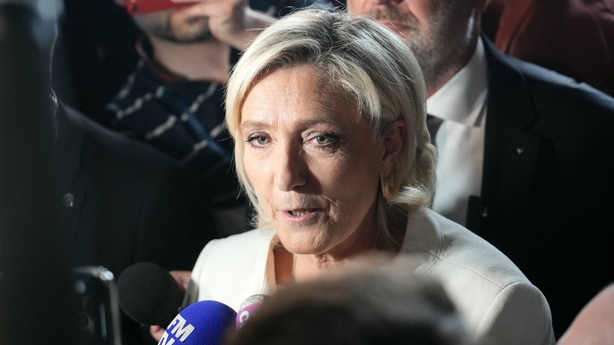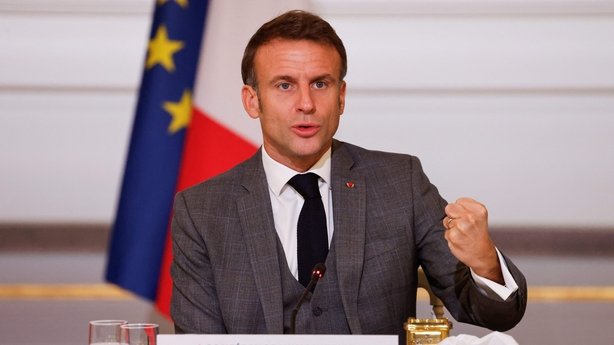President of France Emmanuel Macron has named the European Union's former Brexit negotiator Michel Barnier as new prime minister following almost two months of political deadlock after snap polls, the presidency said.
Mr Barnier, 73, the oldest premier in the history of modern France, has been tasked with forming "a unifying government in the service of the country", it said.
In a striking contrast, the former foreign minister succeeds Gabriel Attal, 35, a man less than half his age and who served only eight months in office.
The appointment of the veteran politician, a member of the right-wing Republicans (LR) party and not affiliated to Mr Macron's centrist faction, was greeted with dismay by the left which may seek to topple him with a no-confidence motion.
A left-wing coalition emerged as France's biggest political force after the elections earlier this summer but with not enough seats for an overall majority.

Mr Macron's centrist faction and the far right make up the two other major groups in the National Assembly.
Conservative ex-minister Xavier Bertrand and former Socialist prime minister Bernard Cazeneuve had been seen as the initial favourites to become prime minister, but both figures fell by the wayside with the mathematics of France's new parliament stacked against them.
In France, the president names the prime minster, who can then be censured by the lower house in a no confidence motion.
Marine Le Pen 'decides'
But Mr Barnier, a right-winger and the European Union's former negotiator on Brexit, was at lunch time seen emerging from talks at the Élysée with Mr Macron to make a dramatic return to frontline politics as premier.
He has been all but invisible in French political life since failing to win his party's nomination to challenge Mr Macron for the presidency in 2022 during a campaign where he leaned further right and suggested a moratorium on immigration.
The veteran former foreign minister and EU commissioner is "Macron-compatible" and would not be immediately voted out by parliament, an advisor to the president told AFP, asking not to be named.

A minister in the outgoing government, who also asked not to be named, said he was "very popular with right-wing members of parliament without being an irritant on the left".
Mr Macron appears to be counting on the far-right National Rally (RN) of three-time presidential candidate Marine Le Pen not to topple Mr Barnier if a no confidence motion is tabled.
"We will wait to see Mr Barnier's policy speech" to parliament, said Ms Le Pen, the leader in parliament of the RN, the party with the most seats in the lower house following the snap polls.
RN party leader Jordan Bardella said Mr Barnier would be judged "on evidence" when he addressed parliament.
The composition of the new cabinet will be closely watched for signs of concessions to Mr Macron's political foes.
Greens leader Marine Tondelier earlier commented: "We know in the end who decides.
"Her name is Marine Le Pen.
"She is the one to whom Macron has decided to submit."

Hard-left leader Jean-Luc Mélenchon, whose Unbowed party (LFI) and allies belong to a left-wing bloc, said Mr Macron naming Mr Barnier meant the election had been "stolen from the French".
Taoiseach Simon Harris congratulated Mr Barnier on his appointment, describing the newly appointed prime minister as a "committed European, a great friend of Ireland's, and a politician of substance and experience".
In a statement, Mr Harris said: "I wish him well as he takes up his role at this important time and I look forward to working with him, with President Macron and the government of France."
Mr Macron's decision comes ahead of a deadline to submit a draft 2025 budget for France's strained government finances before 1 October.
It also marks his attempt to acknowledge rejection of his seven-year rule without giving up on hard-fought reforms, chief among them last year's widely resented increase to the official retirement age to 64 from 62.
Mr Barnier's "task looks tough, but difficulty has never scared him," said former prime minister Edouard Philippe who earlier this week announced he would seek to succeed Mr Macron in 2027 presidential elections.
After the July election deprived Mr Macron of his relative majority in parliament, the centrist president drew out the appointment of a new prime minister for a period unprecedented since World War II, through the July-August Olympic Games and beyond.
Speaking to Le Figaro daily and using rugby parlance, Mr Attal expressed hope his successor could "convert the try" of the policies whose implementation he could not complete during his time in office.

